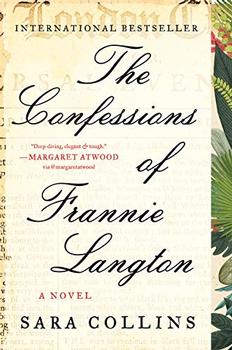19th Century Literary Companions
This article relates to The Confessions of Frannie Langton


In Sara Collins' historical novel The Confessions of Frannie Langton, the titular protagonist, a slave, tells her master's wife, "Books were my companions…And I am grateful I could learn something, no matter how I came to do so. It was a way to know that lives could change, that they could be filled with adventures. There were times I pretended I was a lady in a novel or a romance myself. It might sound foolish. But it made me feel a part of the world that otherwise I could never belong to." Frannie's narrative is full of fond reminiscences of the books she read, especially those she was introduced to through her relationship with Marguerite. Readers might enjoy seeking out some of these gems of 17th-, 18th-, and 19th-century literature that helped shape Frannie's character and worldview.
- Candide by Voltaire is a 1759 satirical novel that traces the title character's descent from utopian optimism into deep disillusionment after witnessing countless hardships and cruelties.
- The Fortunes & Misfortunes of the Famous Moll Flanders is a 1722 novel by Daniel Defoe that follows its title character through her life of dubious moral choices toward a possible redemption.
- Frankenstein by Mary Shelley just marked the 200th anniversary of its publication in 1818. It would have been a recent sensation when Frannie read it in 1825, but it's now known as a classic whose themes about the powers and potential dangers of science were prescient and ahead of the time.
- Mathilda is a less known work by Mary Shelley. This novella-length work was hugely controversial—Shelley's father suppressed it due to its themes of incest—and it was never published in her life time. In fact, a standalone volume was only published for the first time in 2006 (which raises the question of how Mrs. Benham got her hands on a copy, but that's the beauty of fiction!).
- Paradise Lost by John Milton is a 1667 epic poem that, as the title suggests, recounts the expulsion of Adam and Eve from the Garden of Eden. Satan—depicted as a fallen angel—offers his own account of the tale. Milton's ambitious work has inspired and informed countless other works of literature.
- The Confessions by Jean-Jacques Rousseau was published in 1782. Considered one of the first major autobiographies, Confessions shows how Rousseau's early life and education shaped his later philosophy and works such as his seminal Emile, or On Education.
Filed under Reading Lists
 This "beyond the book article" relates to The Confessions of Frannie Langton. It originally ran in May 2019 and has been updated for the
May 2020 paperback edition.
Go to magazine.
This "beyond the book article" relates to The Confessions of Frannie Langton. It originally ran in May 2019 and has been updated for the
May 2020 paperback edition.
Go to magazine.
This review is available to non-members for a limited time. For full access become a member today.
Membership Advantages
- Reviews
- "Beyond the Book" articles
- Free books to read and review (US only)
- Find books by time period, setting & theme
- Read-alike suggestions by book and author
- Book club discussions
- and much more!
-
Just $60 for 12 months or
$20 for 3 months.
- More about membership!


![]() This "beyond the book article" relates to The Confessions of Frannie Langton. It originally ran in May 2019 and has been updated for the
May 2020 paperback edition.
Go to magazine.
This "beyond the book article" relates to The Confessions of Frannie Langton. It originally ran in May 2019 and has been updated for the
May 2020 paperback edition.
Go to magazine.